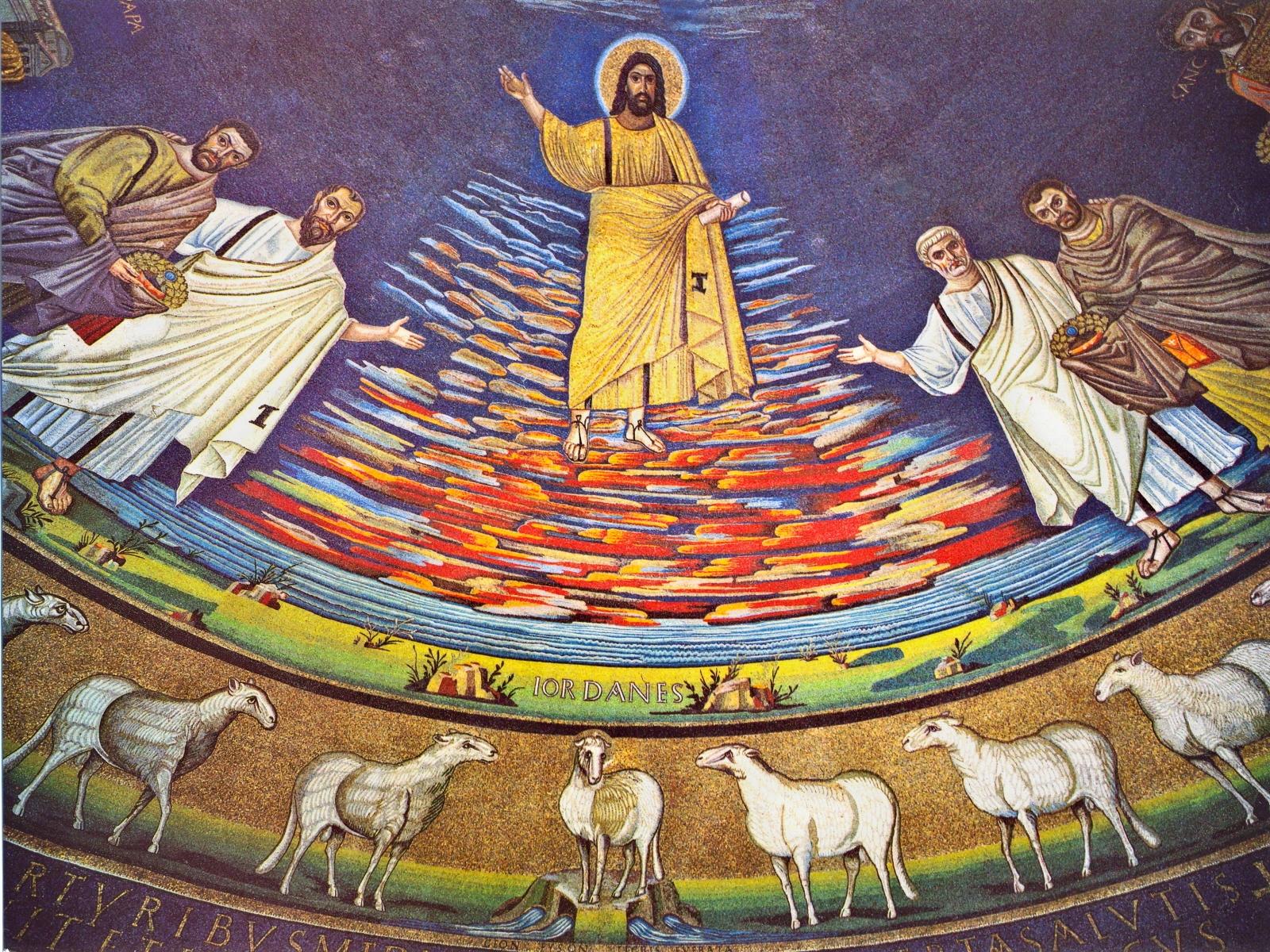Salus Populi Ego Sum

Saints Cosmas and Damian
The Roman stational church of today’s Mass is the Basilica of Saints Cosmas and Damian. Who were Cosmas and Damian? Tradition has it that they were twin brothers martyred in the third century, Arabs by race, and physicians, practicing their profession without claiming payment from their patients. Hence they were known as the “moneyless” or “unmercenary” physicians. Their knowledge of medicine was, according to tradition, perfected by their faith in Christ. Saints Cosmas and Damian were known to heal, by the power of Christ, cases of disease which others had pronounced hopeless. Ultimately, Cosmas and Damian gave their lives in witness to the Divine Physician Christ. They were first honoured in the East, and by the sixth century they had their own basilica in Rome where they are depicted in mosaics which can still be seen today.
Salus
This, then, is some of the background of today’s Holy Mass. It becomes clear that the Introit was chosen in reference to the healing gifts of the Holy Physicians Cosmas and Damian. The first word of the Introit is salus, that is, health.
I am the health of My people, saith the Lord, in whatever tribulation they shall cry to Me, I will hear them, and I will be their Lord forever.
I AM
The initial letters of the first four Latin words of today’s Introit—Salus Populi Ego Sum— are an acrostric forming SPES, the Latin word for hope. The Holy Sacrifice opens today on a note of hope. To understand this rightly, however, we must know who is speaking. The antiphon of the Introit is not drawn from any one passage of Sacred Scripture. Blessed Schuster said that it could be found in the Itala (4th century) version of the New Testament, but I have not been able to verify his reference. It is more significant that we understand the text in line with the other great Ego sum sayings of Our Lord:
John 6:35—I am the bread of life.
John 8:12—I am the light of the world.
John 10:9—I am the door.
John 10:11—I am the good shepherd.
John 11:25—I am the resurrection and the life.
John 14:6—I am the way, and the truth, and the life.
John 15:5—I am the vine, you are the branches.
Christ the Divine Physician
The Introit must be understood in context. Traditionally, it is the great chant that accompanies the crossing of the threshold of the temple and the approach of the altar. Today, it is not we who raise a cry heavenward to the Lord of Glory; it is, rather, the Lord of Glory, the Divine Physician, who greets us on the threshold of the temple of His glorious Physician Martyrs with a resounding message of hope:
I am the health of My people, saith the Lord, in whatever tribulation they shall cry to Me, I will hear them, and I will be their Lord forever.
The psalm verse chosen to accompany the antiphon also merits close attention. It is taken from Psalm 77, the long account of God’s faithfulness, and of His providence, and of the disobedience and ingratitude of His people.
Attend, O my people, to my law: incline your ears to the words of my mouth. (Psalm 77:1)
Christ, the Divine Physician, invites us to incline our ears to the words of His mouth. And what does He say?
I am the health of My people, saith the Lord, in whatever tribulation they shall cry to Me, I will hear them, and I will be their Lord forever.
Salus Populi Ego Sum. Spes. Hope. Our Lord would have us understand that today no one is sent away hopeless, that there is a remedy for every ill, an antidote for every poison, and grace for every infirmity. In the hands of the Divine Physician, and nourished by the healing remedies of His adorable Body and Blood, who among us can remain without hope?

Thank you.
Thank you for your emphasis on hope for all ills, ailments, impossible, tangled situations, and sin. This is so appreciated and encouraging to readers of Vultus Christi!